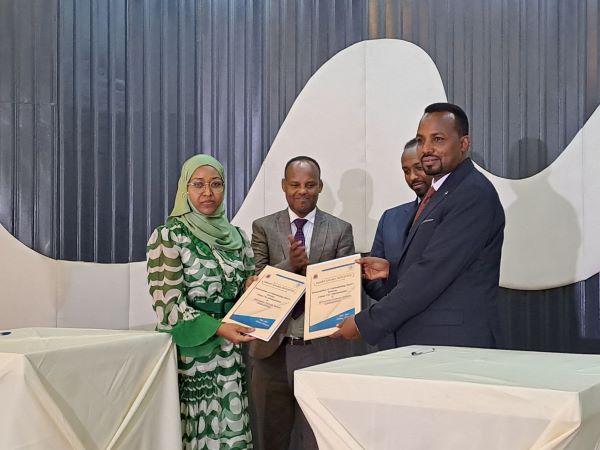INSA and Adama City Administration Signed MoU - en
Sisälletyt portletit
Sisältöjulkaisija
Information Network Security Administration of Ethiopia (INSA) and the Adama City Administration signed a memorandum of understanding to enable them to work together on the "Smart Adama" project.
The Director General of INSA, Mrs. Tigist Hamid, and the Mayor of Adama City, Mr. Hailu Jelde, signed the MoU. Stakeholders held a panel discussion on the "Smart Adama" project performance. Mr. Hailu wished the project would be a model for other cities in the country.
Mrs. Tigist Hamid stated that the Information Network Security Administration would provide professional support and consultancy to realize the "Smart Adama" project and digitize the city.
Mrs. Tigist Hamid also said that INSA would equip the city administration with indigenous cyber security technology products and provide cyber security awareness training, inspection and evaluation services, and other related activities.
On the review of the performance of the "Smart Adama" project, the mayor of Adama city, Mr. Hailu Jelde, the deputy head of Oromia cities cluster coordinator Mesfen Meleku, the director general of INSA, Mrs. Tigist Hamid, the director general of the Artificial Intelligence, Worku Gachna, the Ministry of Urban Development and Construction, Fanta Dejen and other stakeholders participated.


